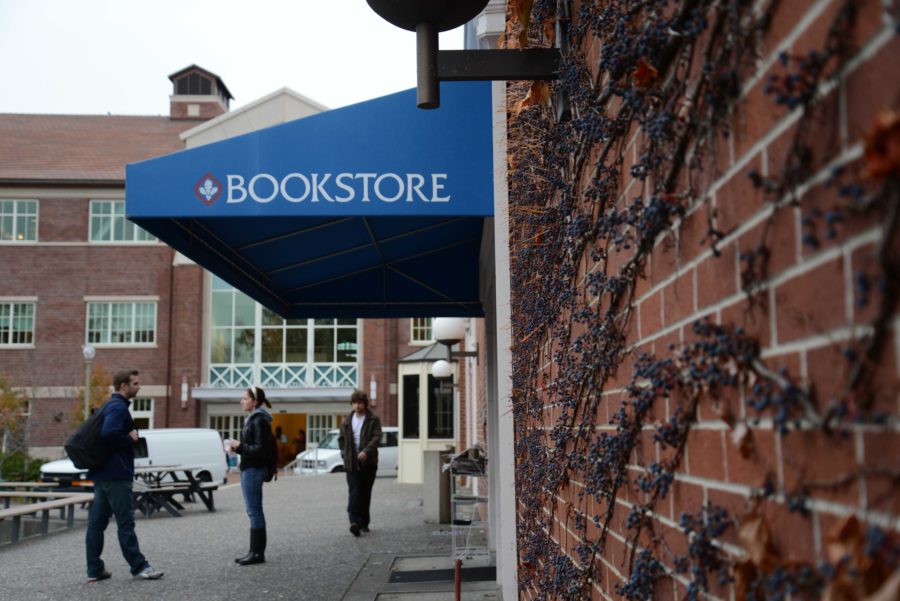SRJC Students may line up in stores to splurge on gifts for friends and family now, but after December, they will be forced to purchase something that may evoke less cheer: college textbooks.
The price of textbooks has concerned college students for years. In 2005, the U.S. Government Accountability Office reported that full-time community college students spent an average of $886 on textbooks and supplies during the 2003-04 school year.
College students are finding ways to cut down on textbook spending as new options become available. While some may appreciate a new book, others find that buying a used book, renting a book, or downloading an e-book is more affordable and convenient. Students must also decide where to purchase their books: online at sites like Amazon.com, the campus bookstore or both.
Many students turn to purchasing their books online, where they can compare prices from their home. “I usually get my stuff on eBay,” said SRJC sophomore Michael Lousks. “Some things you can’t find online though.”
Students who shop online for used textbooks may run into trouble when they cannot find a necessary book; this is where many students said they turn to the SRJC Bookstore. SRJC sophomore Mary Roll agrees with Lousks they’d rather not have to wait in line or deal with bookstore crowds. “It’s so much easier to sit at home with your laptop in pajamas,” Roll said.
Students who purchase books online can encounter different problems, like books arriving late or in bad condition, or ordering the wrong edition of a book. Aritza Casas, 18, described having to share a book with another student because the book she ordered online didn’t arrive until a month and a half into the semester.
Most students who purchased used books online believed the additional time it took to find their books was time well spent. “It’s worth it because I can save about $70 on a book,” said SRJC student Stephen Cave.
Even with multiple websites available, some SRJC students prefer shopping at the SRJC Bookstore. “It’s more convenient for me because I’m already here,” said student Farrah Parks.
The SRJC Bookstore allows students to buy new, used or rented books and e-books. Students can go to the bookstore website and find the textbooks they need for the semester if they know their instructors’ names and classes. From there they can put the books on hold and pick them up, or have them shipped to their home. Students can also go into the bookstore and have an employee help find the necessary books.
“There is always going to be the sticker shock aspect,” said Rachel Minor, Petaluma Campus Bookstore manager. Publishers have the right to set book prices, while college bookstores must adjust prices to pay for the general running of the store and employees.
Data from the National Association for College Stores shows how every dollar that students pay to purchase textbooks is distributed. On a national average, 77.4 cents of that dollar go to the whole sale cost (cost of publishing, publishing income, marketing and author income among other things) 1 cent goes to freight expenses (transporting) and the leftover 21.6 cents goes to the stores. Out of those 21.6 cents roughly 10.7 cents go towards paying employees, 7.2 cents cover store operations and 3.7 cents would result in profit before tax.
Peter Demetrak, an SRJC student for several years, doesn’t mind going to the bookstore because he rather spend his money locally. “You want to do what you can for your school,” he said. The campus store tries to do what it can for SRJC students as well. “We actually look at Amazon and get them as close as possible,” Minor said about book prices.
A new feature the bookstore introduced this semester is a comparison tool on its website so students can see how SRJC prices match up to competitors. “It’s our way of showing transparency,” Minor said. She added that this tool wins people over and convinces them to purchase books through the SRJC Bookstore.
The campus bookstore and online websites like Chegg.com allow students to rent textbooks for less money than buying new. Rented books essentially charge students to ‘borrow’ the book. If a rented book is damaged, students are responsible for paying for the book as well. Students who rent a book online must ship it back on time or face additional fees.
More recently, downloadable e-books have become options with the growing popularity of Kindles and iPads. E-books significantly reduce the weight students have to carry around and are often less expensive than traditional textbooks.
“I don’t like it,” said Bridget Falletto, a student who rented an e-book for her anthropology class. Since she doesn’t own a laptop, she is confined to the chair in front of her computer and finds it hard to take notes. One advantage for Falletto is being able to search keywords within the text. Lidia Lopez-Flores also has reservations about buying an e-book. “I personally learn from the physical handling of the book,” she said, adding that she likes to write in the actual book and highlight sections. Another deal- breaker for students is that although they can rent e-books for a cheaper price, they cannot sell e-books back.
The future of textbooks includes the possibility of open-sourced books that allow students to view selected textbooks online for free or printed cheaply.


